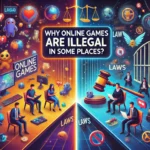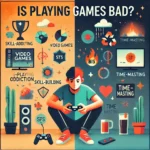The difference between a game of skill and a game of chance lies in the primary factors that determine the outcome of the game.
1. Game of Skill
A game of skill relies predominantly on the player’s expertise, knowledge, strategy, and decision-making abilities. While there may be minor elements of luck involved, the player’s performance largely determines the outcome.
Key Characteristics:
• Player Control: The outcome depends on the player’s abilities and decisions.
• Learning Curve: Practice and experience can significantly improve performance.
• Minimal Randomness: Random events play a limited role in determining the outcome.
Examples of Games of Skill:
1. Chess
• Requires strategic thinking, planning, and foresight.
• No random elements; the outcome is entirely based on the players’ moves.
2. Fantasy Sports (e.g., Dream11)
• Involves analyzing player statistics, current form, and conditions to build a team.
• Requires understanding of the sport and making informed decisions.
3. Poker (in some jurisdictions)
• Combines mathematical analysis, psychology, and bluffing skills.
• Requires continuous improvement and decision-making strategies.
4. Online Games Like PUBG or Fortnite
• Requires shooting skills, strategic positioning, and teamwork.
• Players improve with practice and game experience.
2. Game of Chance
A game of chance is primarily determined by luck, with little to no influence from the player’s skills or decisions. The outcome is typically random, often driven by probability.
Key Characteristics:
• Randomness Dominates: The outcome is unpredictable and relies on chance.
• No Control: Players cannot influence the result through skill.
• Equal Playing Field: All participants have an equal chance of winning.
Examples of Games of Chance:
1. Lottery
• Completely luck-based; winners are chosen randomly.
• Requires purchasing a ticket, with no strategy involved.
2. Slot Machines
• Players spin reels, and results depend on random number generators (RNG).
• No skill or strategy can influence the outcome.
3. Roulette
• Involves betting on where a ball will land on a spinning wheel.
• The result is random and cannot be influenced by the player.
4. Dice Games (e.g., Craps)
• Outcomes depend on the roll of dice.
• No decision-making by the player affects the result.

Legal and Regulatory Implications
1. Games of Skill:
• Often exempt from gambling laws as they are not considered “gambling.”
• Allowed in many jurisdictions due to their reliance on player ability.
• Example: Fantasy sports like Dream11 are considered skill-based in India and many other countries.
2. Games of Chance:
• Often regulated under gambling laws due to the random nature of outcomes.
• Frequently banned or restricted in jurisdictions concerned about addiction or social harm.
Hybrid Games
Some games combine elements of both skill and chance. For instance:
• Poker: Relies on skill but has elements of chance due to card shuffling.
• Rummy: Requires skill to arrange cards but depends on the dealt cards.
Understanding whether a game is primarily skill-based or chance-based is crucial, especially in legal contexts and for responsible gaming.




